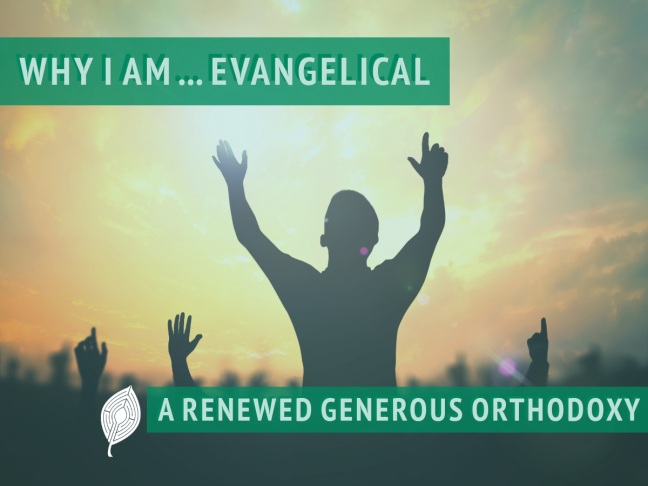There was a meme circulating a few months ago that did a good job of summarizing the current state of the relationship between Evangelical Christianity and the rest of the world. It started with an Evangelical user posting something like “There is no group more vilified today than Evangelical Christians.” Then someone commented, “If you don’t want to be vilified, maybe you should stop acting like villains.” Indeed, today, the public, political face of Evangelicalism, especially White Evangelicalism, is often as angry, manipulative, cruel, and power-hungry as any Bond villain. This makes it very difficult for anyone outside of its echo-chamber to talk about it positively. But this face is not the only one Evangelicalism has worn. A hundred years ago, prominent White Evangelicals were staffing soup kitchens, working to break down racial and ethnic barriers, and providing leadership opportunities for women in ministry — things anathema to the public face of Evangelicalism today. And there is much to celebrate within its history and values. And while I have to shake my head at what’s become of it, it’s also a tradition that shaped me in positive ways. So today I ask the question: How, and why, am I evangelical?
First and foremost, I am evangelical because of their strong value in the Scriptures. While I certainly think Evangelicals have gone overboard in how they talk about the Bible, the Scriptures must always be our starting place, and we must take every effort to ensure we are interpreting it properly. There are three ways Evangelicalism has positively shaped my relationship to the Scriptures:
- First, in its insistence that all Christians actually read the Bible and spend intentional time with it. When I was studying at an Evangelical seminary, it was understood and expected that all students, staff, and faculty, would spend a half hour every morning in quiet Bible study, without exception. Reading the Bible was the ‘first thing’ that was to be placed first, every day, no matter what. Even if not everyone lived up to this value, many did.
- Second, in the high quality of its biblical scholarship. As much as I may not always agree with their presuppositions and conclusions, there can be no question that Evangelicals do excellent biblical scholarship. They want deeply to ‘get it right’, and are therefore highly motivated to do the work required in bridging the gaps between us today and thousands-of-years-old texts.
- And, third, in the so-called ‘Red Letter’ movement that has, since the turn of the last century (and revitalized after the turn of our current one) placed a proper emphasis in Christian living on the words of Jesus.
Secondly, I am evangelical because this tradition has a long history of meeting people where they’re at. Whether it was preaching a Gospel of transformation and hope in the drunken coal-mines of nineteenth-century Wales or the program-oriented ministry of today’s suburban megachurches, Evangelicalism has a built-in ability to speak in ways that matter to an ever-changing audience. This is not always good, but it certainly removes barriers to entry for people. This is also why Evangelicalism has been the standard bearer for Christian youth culture. I was definitely a benefactor of this in my teens and early twenties. If we want to put this into the language of practical theology, this is a deeply incarnational approach. It meets people where they are, understands their needs, desires, hopes, and fears, and then ministers to them in word and deed to meet those needs and empower those hopes. At its worst, this can be manipulative, but at its best, it’s Christ’s hands and feet at work in the world.
Finally, I am evangelical because Evangelicalism demands that our faith actually make a difference in how we live. As extreme and unrealistic as the ‘second blessing’ idea from Methodism may be, it gave Evangelicalism a strong emphasis on the Gospel as a transforming force in the lives of individuals — an emphasis we see time and time again in the Scriptures, but which took a back seat in a lot of older, more communitarian, Christian theology and ecclesiology. If I am a Christian, my life should change to be ever more like Christ’s. Full stop.
So then, as much as I may grieve the current state of Evangelicalism in the West today, and as much as I may critique some of its foundational ideas, there is much I can celebrate in its traditions, and it has positively impacted my life and faith.


Putting emphasis on the Gospels over the other books of the Bible has put me at odds with most of my current congregation. It has got to the point that I can no longer be a part of Sunday School because I disagree with the content. I am enjoying this series a lot.
LikeLiked by 1 person